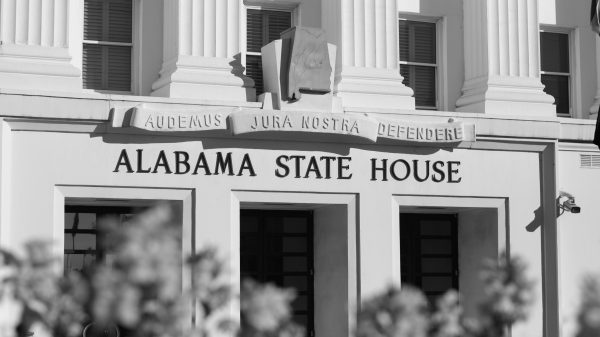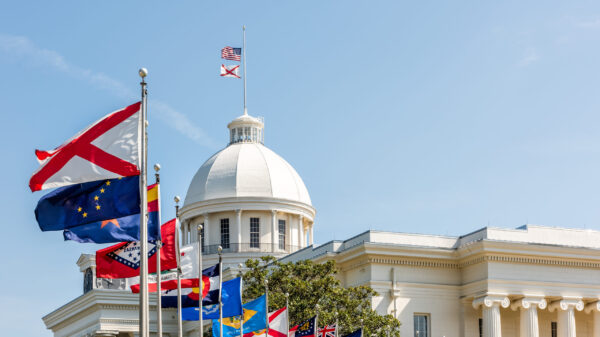|
Getting your Trinity Audio player ready...
|
It should be a fairly easy question for a state agency to answer.
Do you plan to tax all similar businesses the same?
Seems reasonable, right? So, why couldn’t the Alabama Department of Revenue do that recently when I called to ask if it planned to impose the same taxes on all electronic bingo casinos as it has placed on GreeneTrack?
But then, that’s been a question throughout this process, hasn’t it? Why is the state’s only Black-owned casino being subjected to very questionable tax laws – tax laws that not only aren’t imposed on other Alabama casinos operating the same COUNTY, but also tax laws that aren’t utilized anywhere in the world?
That has a stench of discrimination. Whether racial or not, something has left GreeneTrack singled out.
Something has forced the state’s second oldest dog track to shutter its casino. Something has left it paying – and read this carefully – more in taxes than it took in.
Yes, that’s accurate.
A business in this state was just forced to pay more in taxes than it took in. Mind you, that’s not profits. GreeneTrack paid more than its TOTAL REVENUE.
I don’t care how you feel about gambling or taxes, that’s just plain wrong. And the only way to make it more wrong is to impose such a ridiculous tax scheme on only one business. While similar businesses all around it continue to rake in profits and face no consequences.
But then, maybe it’s just the next logical step in Alabama’s absurd gaming process – a process that left the state rewarding a casino owner with the Businessman of the Year Award one year and being raided at that business the next. A process that has cost the state billions of dollars. A process that has been misguided and corrupted from the very start.
A process that has watched Alabamians dump hundreds of billions of dollars into neighboring states’ casinos and into tax exempt Poarch Creek casinos, while the citizens of Alabama deal with all the problems of gambling while receiving none of the revenue.
This GreeneTrack tax ordeal is just the latest in a long, long line of utter befuddling and practically ignorant actions by state officials.
Actually, that description might be too kind. Corrupt might be a better word for it. Because what else would you call it when the government straight up steals from a business by purposefully misapplying the tax code through a court process that violated every precedent and rule on the books?
The way GreeneTrack ended up paying this 110-percent tax rate – and that’s pretty close to its actual rate – was an anti-gambling governor appointed a revenue commissioner with the intent of finding a way to tax the casino into nonexistence, because the casino had the law and people on its side; that commissioner concocted a tax scheme in which the state taxed fantasy money without allowing for losses; the ALSC took up that case, ruled on matters that weren’t appealed and weren’t even argued in a lower court and it upheld that tax system.
I mean, here’s what Alabama is taxing to get to this absurd tax bill that GreeneTrack must pay: If a person puts a $1 in a machine at its casino and wins $10, but then proceeds to keep gambling and loses that money too, the state of Alabama says GreeneTrack must pay taxes on an $11 income.
And you know, that’s fair. Because the person could absolutely take that $10 and leave.
But here’s the screwed up part: GreeneTrack never gets to count the $10 loss, as it would if the person took the winnings and left, but then returned later and lost it.
That’s why the taxes are higher than the revenue.
It’s a system designed to put GreeneTrack out of business. And it should scare the hell out of every other business owner in this state. Because if this is allowed to stand, what’s to stop them from coming after you?
What if you’re running a business that they don’t like, or one that’s eating into the profits of a big money donor? If the state can simply make up tax laws, apply them unequally and unfairly and have the entire sham upheld by the state’s highest court (despite two lower court rulings and a ruling from the Alabama Tax Tribunal), there is absolutely nothing to stop them.
Most business owners would have already filed a federal lawsuit, because Nat Winn, GreeneTrack’s CEO, has a clear case of discrimination, but that’s not what he’s doing. Winn isn’t like that. He wants to play by the rules, wants to get along with the people in the state. And he also really wants to keep his employees earning a paycheck.
Winn said the latter is his primary goal right now – figuring out a way to work with the state so GreeneTrack can reopen and get his employees back to work. Because it’s not like there are many options for them in Greene County – one of Alabama’s poorest and most economically depressed counties.
But there’s no way that attitude of cooperation can continue for long. Nor should it.
What’s happening to GreeneTrack is wholly unfair, and someone needs to put a stop to it before a federal judge takes it up.























































